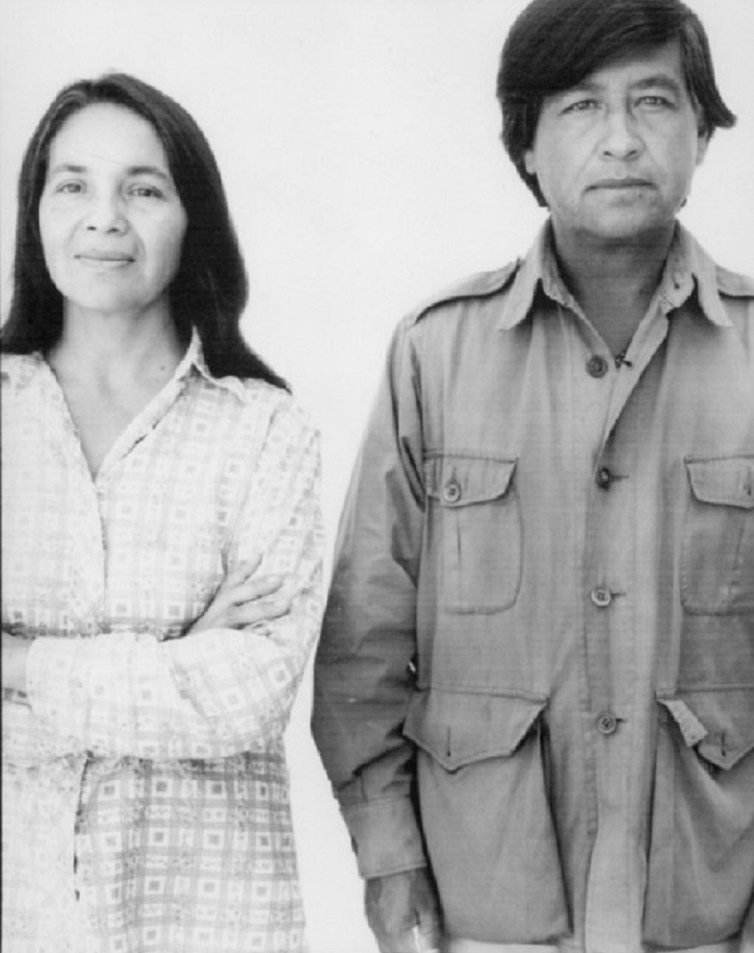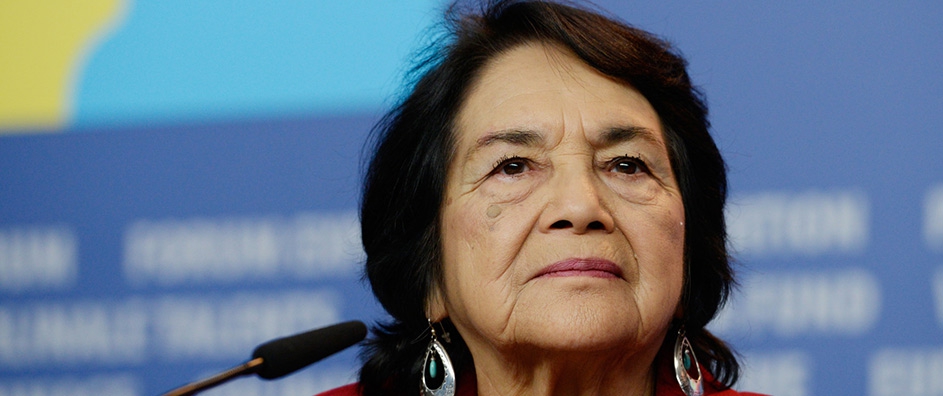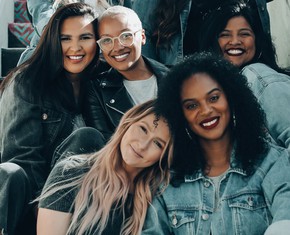The views expressed in our content reflect individual perspectives and do not represent the authoritative views of the Baha'i Faith.
The name Cesar Chavez inspires immediate recognition—but mention Dolores Huerta, and only a few know the important role she plays in American history.

Dolores Huerta and Cesar Chavez
Some will say, “Didn’t Dolores Huerta work with Cesar Chavez?” Yes. But she not only “worked with him,” she was equally involved in forming the United Farm Workers union, in initiating and carrying out the famous grape boycott that spread from California across the nation, and in many more endeavors that resulted in critically important reforms for some of the world’s poorest and most oppressed people.
When Dolores was only three years old, her parents, Juan and Alicia Fernandez, divorced. Her mother took Dolores and moved from New Mexico to California. Yet her father’s life, his union activities and service as a New Mexico state assemblyman impressed her. The distance between them didn’t prevent her from learning the importance of service to others from her father.
A bright student, the winner of a national essay contest, a majorette and a Girl Scout, Huerta took music and dance lessons and was a well-rounded youth—yet she still experienced blind prejudice first hand. A teacher accused her of appropriating another pupil’s work because she didn’t believe Dolores could possibly have done so well since she was Mexican. At the impressionable age of 15, she also had to deal with the fact that simply because her brother wore a zoot-suit, the current fashion for Latinos, that was all the motivation necessary for some white men to physically assault him.
After graduating from college, Huerta’s teaching career was short-lived. So emotionally upset by seeing her young students, many the children of farmworkers, come to class hungry and shoeless, she changed direction and became a co-founder of the Stockton chapter of the Community Service Organization (CSO). CSO sought an end to segregation and fought against the discriminatory practices prevalent at all levels of society, including government and police tactics, of which she would one day be a victim. Years later, while protesting in San Francisco, she was hospitalized following a police beating that broke six of her ribs and ruptured her spleen. Not only did her injuries fail to end her activism, she branched out and began working for women’s rights in the political realm.
The Baha’i Declaration of Human Obligations and Rights, presented to the first session of the United Nations Commission on Human Rights at Lake Success, New York in February of 1947, reads in part:
An equal standard of human rights must be upheld, and individuals given equal opportunities. Variety and not uniformity is the principle of organic society. Since lack of opportunity, repression and degrading conditions have created masses of people unable to exercise the functions of citizenship, such persons are a moral trust laid upon the conscience of the rest, to educate the ignorant, train the immature and heal the sick.
These principles, which Baha’is believe come directly from the teachings of Baha’u’llah, have permeated the consciousness of the age. That consciousness, which opposes and works for the alleviation of “lack of opportunity, repression and degrading conditions,” was the aim of Dolores Huerta and CSO’s Executive Director Cesar Chavez. In 1960, out of concern for the repressive plight of so many farmworkers, Huerta started the Agricultural Workers Association (AWA). Both Huerta and Chavez worked to register eligible voters, and petitioned for Spanish language ballots and driver’s license tests.
Dolores Huerta, the mother of 11 children and one of America’s most powerful activists, embodies the Baha’i character virtues of consideration, care and concern for the poor:
Each one of you must have great consideration for the poor and render them assistance. Organize in an effort to help them and prevent increase of poverty. – Abdu’l-Baha, Foundations of World Unity, p. 36.
Join yourselves to those who work for the poor, the weak and the unfortunate; this is greatly to be commended. – Abdu’l-Baha, Abdu’l-Baha in London, p. 98.
Later, frustrated by CSO’s focus being mainly in urban areas and not sufficiently addressing the needs of agricultural workers, Huerta and Chavez left the organization and helped found the National Farm Workers Association (NFWA) which, in 1965, merged with AWA to become the union known today as the United Farm Workers.
An article on biography.com describes their working partnership, “The two made a great team. Chavez was the dynamic leader and speaker; and Huerta the skilled organizer and tough negotiator.”
One of Huerta’s early successes came when she helped obtain Aid For Dependent Families (AFDC) and disability insurance for farm workers in the State of California, as well as the Agricultural Labor Relations Act of 1975 which secured collective bargaining rights for farmworkers. This was the first law of its kind in the country.
The National Women’s Museum states, “Dolores Clara Fernandez Huerta is one of the most influential labor activists of the 20th century and a leader of the Chicano civil rights movement.” They don’t distinguish her as one of the most influential female activists, or one of the most influential Chicano activists, but inclusively as “one of the most influential labor activists.”
Huerta worked on numerous political campaigns and Bobby Kennedy, just prior to his assassination, gave her credit for his win in the California primary. She was inducted into the California Hall of Fame, and received numerous awards, including the Presidential Medal of Freedom, yet Dolores Huerta, still active at 86, remains unknown to most Americans.
In an effort to rectify what he sees as a grave omission, Filmmaker Peter Bratt made a 95 minute documentary, Dolores, screened at the 2017 Sundance Film Festival in January. When the documentary is released, make an effort to see it, get ready to be inspired and prepare to “Join yourselves to those who work for the poor, the weak and the unfortunate.”
















Comments
Sign in or create an account
Continue with Googleor